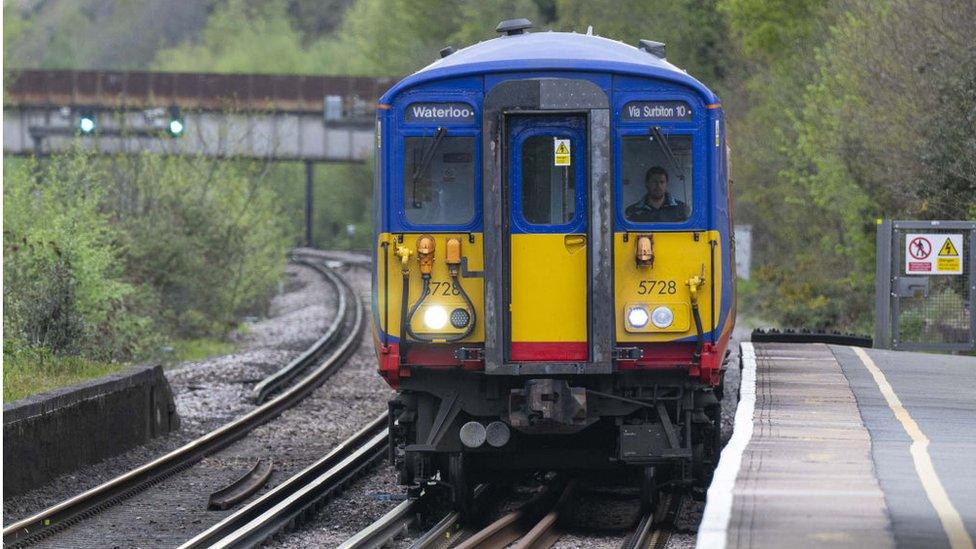Cost of living: Governor of the Bank of England, Andrew Bailey, talks about inflation, interest rates and how it impacts young people
- Published
- comments
Cost of living: Newsround Interviews Bank of England boss Andrew Bailey
Money is a worry on a lot of people's minds at the moment and that's because of the rising cost of living.
Prices are continuing to go up which means families are having to make difficult decisions about what they spend their money on.
Inflation - the rise in the cost of goods and services over a period of time - is still having an impact on food prices and how much families pay for the homes they live in.
I went to meet Andrew Bailey, the person in charge of the Bank of England which looks after the country's money, to find out what's going on.
Inflation, mortgages and the cost of living
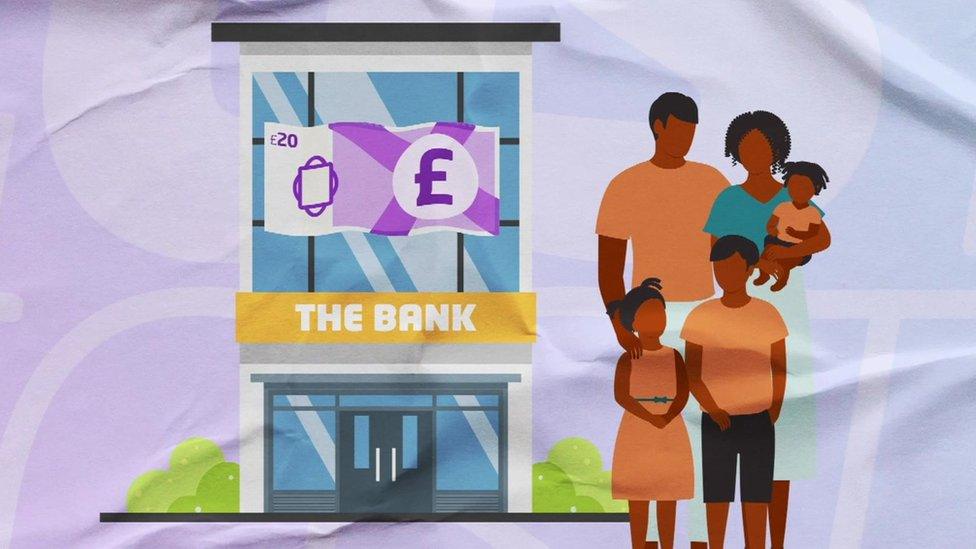
It's not just things like groceries, clothes and toys that are very expensive at the moment - the cost of owning or living in houses and flats is going up too.
Some families rent the homes they live in which means they pay someone else who owns the home to live in it. Other adults have what's called a mortgage - money borrowed from a bank to buy a house, which is paid back bit by bit over many years.
Both the cost of renting and the cost of paying a mortgage have increased dramatically for many families.
A mortgage is a loan used to buy a home.
Buying a home is very expensive. Most people cannot pay all in one go, so they borrow money from a bank or building society. That loan is called a mortgage, and is paid off gradually every month for many years.
Kevin Peachey, BBC's cost of living correspondent
What is the Bank of England?
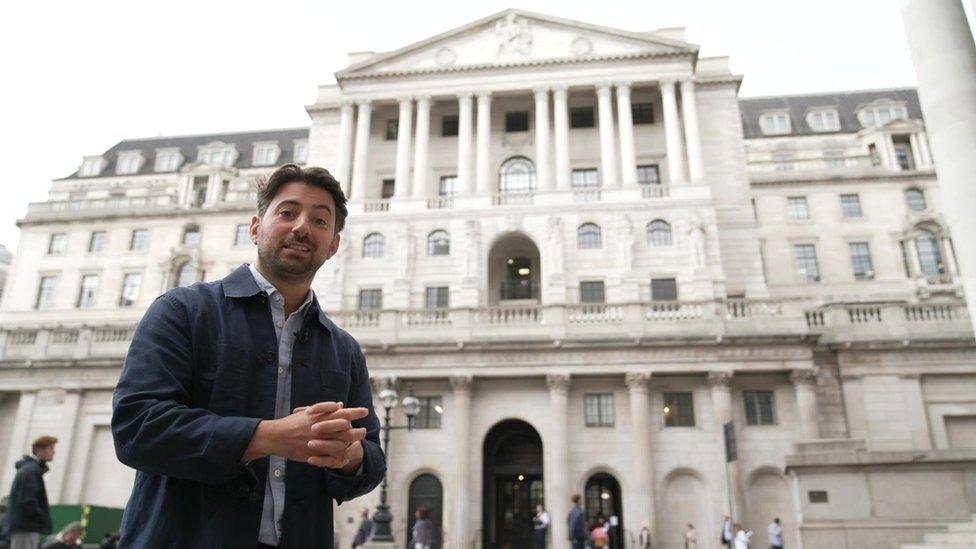
I went to the Bank of England to find out what's going on with inflation and interest rates
The Bank of England looks after the country's money.
It prints all our bank notes, oversees card payments and decisions about things like interest rates are made here.
The Governor of the Bank of England is Andrew Bailey - he's in charge and oversees everything at the bank.
Interest rates show how much extra you have to pay if you borrow money from a bank or building society.
For example, if you borrow £1,000 for a year, with an interest rate of 10%, then - after a year - you must pay back the £1,000 plus 10% of £1,000, which is £100. So in total, you will pay back £1,100.
Kevin Peachey, BBC's cost of living correspondent
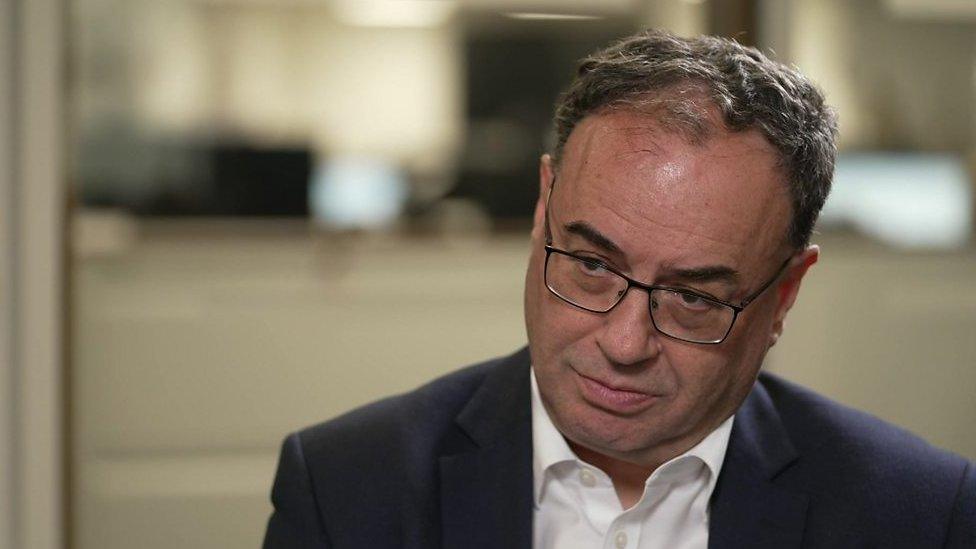
Andrew Bailey is the boss of the Bank of England
He works with a team who take a look at the economy, and set what they believe to be appropriate rates based on their analysis.
One of their jobs is to try to make sure the UK economy helps businesses to grow, and that the cost of things doesn't go up too quickly.
At the moment the UK is still facing a period of high inflation - which means costs are rising fast.
One way of trying to tackle that is to raise interest rates, which should make it more expensive to borrow money, which includes mortgages, and more attractive to save money rather than spend it.
Interest rates have been going up regularly since December 2021, and are expected to go up again, and remain high for longer than previously expected.
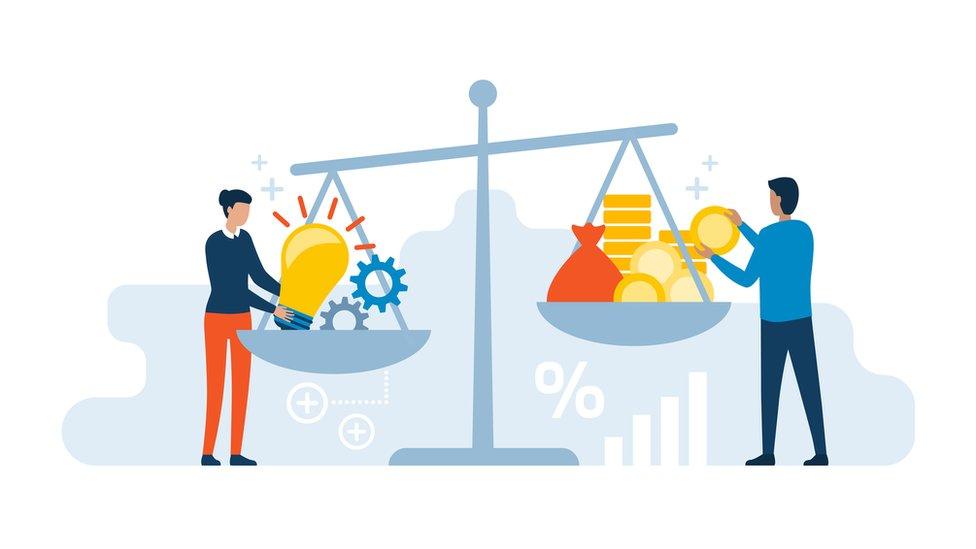
'There are a lot of challenges for young people and families, are you hearing that kids are struggling at the moment?'
Andrew Bailey: "People are struggling. Inflation is way too high. We (the Bank of England) have a target, that prices should rise by no more than 2%.
"It is sadly above that at the moment - above 8% at the moment - and I understand it is difficult.
"People are having to make very difficult choices about what they buy, what they need for their lives."
'Would you say that it's young families that are dealing with this the most compared to older people?'
Andrew Bailey: "It is true throughout the world really that younger people tend to borrow more money and as we all get older, we tend to have more savings.
"That tends to be the way people's life-cycles work so it will have more of an affect on young people and younger families.
"I do understand this and I feel very much for this. We want to get inflation back where it needs to be and then we can obviously assess what level interest rates should be at going forwards.
"It's hard and I agree and I understand very much the difficulties people face.
"Unfortunately this is how we have to get inflation down and... if we don't get inflation down and it keeps going on, it gets worse and we'll have to put interest rates up more."
'What can children expect as a result of interest rates going up?'
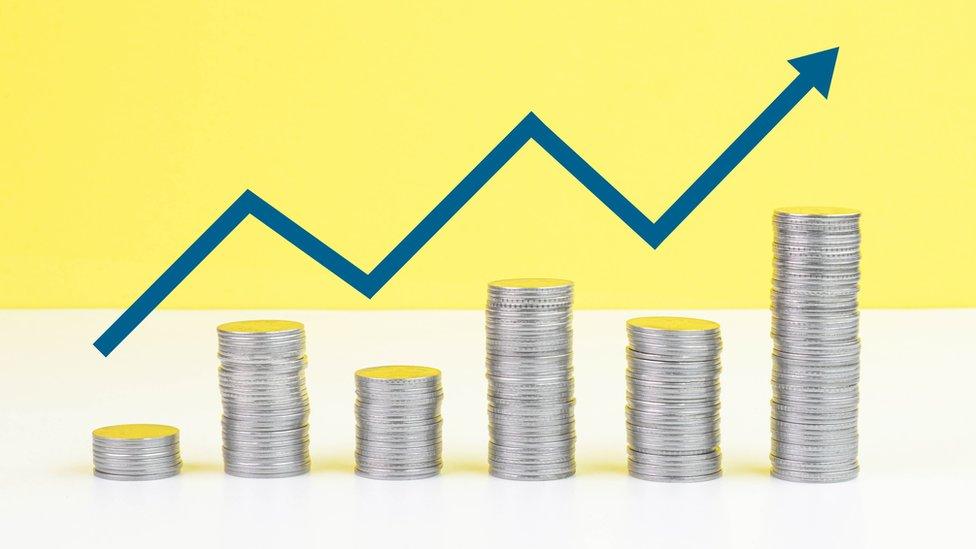
Andrew Bailey: "So I do expect inflation to go down, it's already started to come down and I expect quite a marked fall in inflation. They will notice it.
"What we have to do is set the interest rate to get it (inflation) all the way down to 2%."
'How long will that take?'
Andrew Bailey: "We review this regularly.
"I think to get back to the 2% target... we should see this happen... through next year, towards the end of next year. "
'When do you think that those interest rates will start coming down?'
Andrew Bailey: "I can't give you a date as to when interest rates are going to come down because that really depends upon what happens over the period of time ahead.
"But getting inflation down is the most important thing that we have to do."
- Published30 June 2023
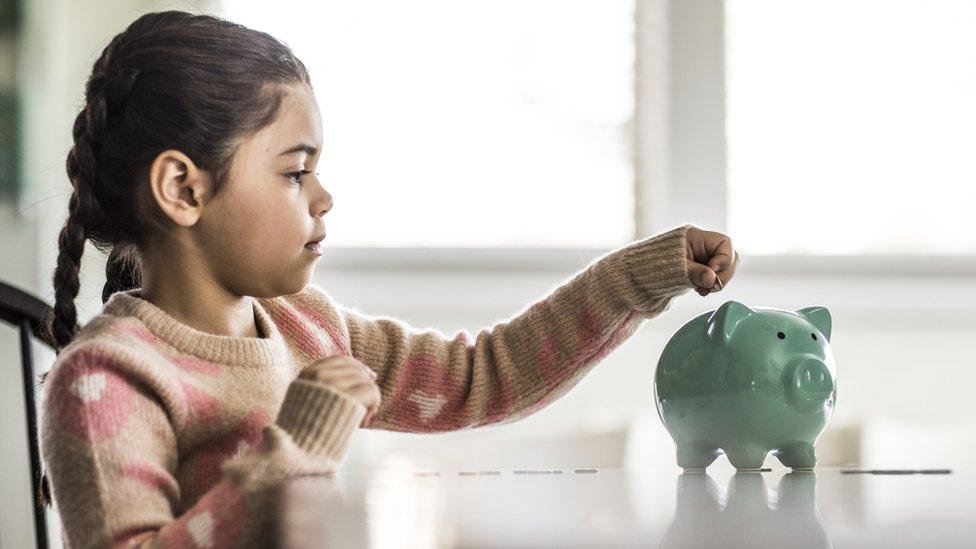
- Published27 June 2023

- Published23 June 2023
